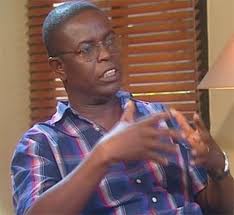
Editor of the Insight newspaper, Kwesi Pratt Jnr., has asked government to ‘think twice’ before sending troops to Mali.
Mr Pratt wonders if the Ghana Armed Forces is psychologically and politically prepared for the Malian war.
To him, there is no need for Ghana to feel compelled to send troops to Mali because there are other countries that are not sending troops.
Northern Mali fell under Islamist control after a March 2012 military coup in Bamako triggered a Tuareg-led rebel offensive that seized the north and split the West African nation in two.
Last month (December), the U.N. Security Council approved an African-led force to help Mali's government reclaim the north. That force is to be comprised of up to 3,300 troops, but is not expected to be deployed in the north before September.
The French and others have called for an acceleration of the force's deployment in light of the emergency Mali is facing.
As a step of its deep involvement in the Mali battle, France has increased its troops' strength in Mali to 1,400. The European nation is expected to increase its troops to 2,500. Meanwhile, regional forces are also moving into Mali to join the UN-mandated intervention operations. A group of Nigerian forces arrived in Bamako on Thursday. It plans to contribute 900 troops as part of the regional forces to Mali.
As planned, Niger, Senegal and Burkina Faso will send 500 soldiers each, Benin 300 men, Guinea 150 and Ghana 120 soldier to the continental forces.
Chad, which is not an ECOWAS member, has promised 2,000 soldiers and Togo agreed to put 540 soldiers to the operations in Mali.
The Economic Community of West African States (ECOWAS) plans to mobilize a regional force of 3,300 troops with Nigeria's General Sehy Oumar Abdul Kadry as the Commander and his Deputy Commander will be Yaya Garba from Niger. MISMA (International Mission for Support to Mali)'s Chief of General Staff will be Colonel Jean Paul Ntab from Senegal.
But the French, Malian and African forces are facing off against an Islamist coalition that includes al Qaeda's North African wing, AQIM, and the homegrown Ansar Dine and MUJWA militants. The motley mix of Tuareg rebels, Islamists and foreign jihadists has been united by the threat of foreign military intervention, which the Security Council called for last month.
Some of the militants are believed to have been trained and armed by the government of late Libyan leader Muammar Gaddafi, who was ousted and killed by rebels in a 2011 civil war.
Perhaps it is against these reasons that many people have stood against the decision of Ghana sending troops to Mali.
Some say there will be repercussions while others feel it is none of our business to interfere in the affairs of other countries.
Speaking as a panelist on Peace FM’s morning show ‘kokrokoo’ programme on Friday with Tweneboa Kodua (TK), sitting in as host for Sefa Kayi, Kwesi Pratt Jnr. firmly opined quite unlike the notion that the troops are undergoing a peace keeping operation, ‘it is an actual combat to claim something’.
“They (Islamic rebels) have already warned other countries not to assist Mali in fighting; if they do, they will be attacked. France helped and they were told that they have opened the gates of hell; meaning they will be attacked...I wonder if Ghana is ready for this battle. There is no need for us to invite any unnecessary hatred. Many African countries have said they will not go. Looking into the future, I don’t think this will yield any good fruits,” he posited.
The seasoned journalist preferred that Ghana rather enters into ‘negotiations; applying the principle of self determination because the Tuareg rebels have legitimate grievances’.